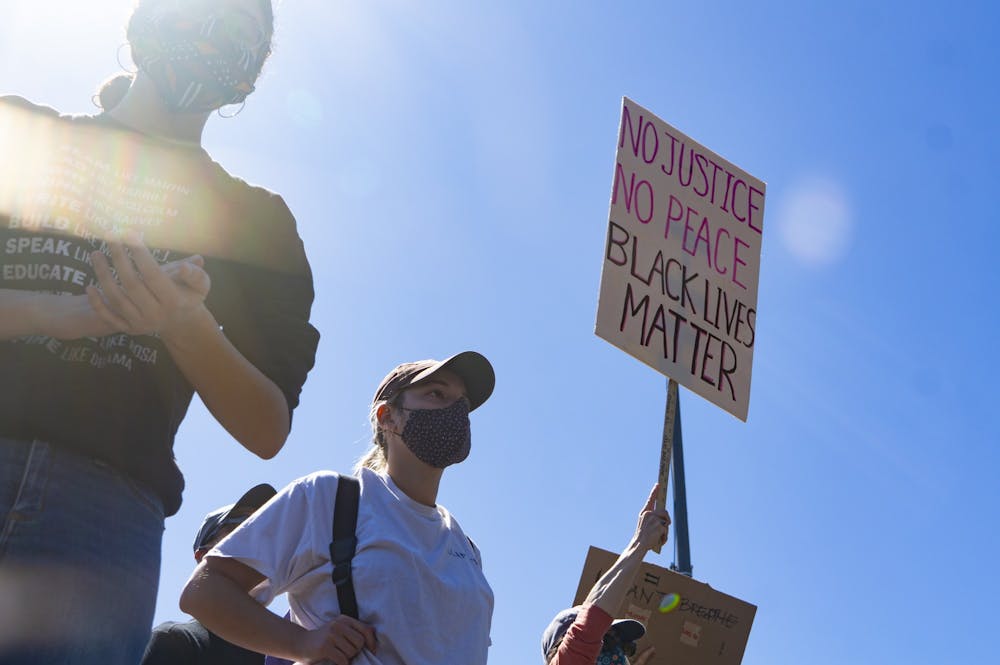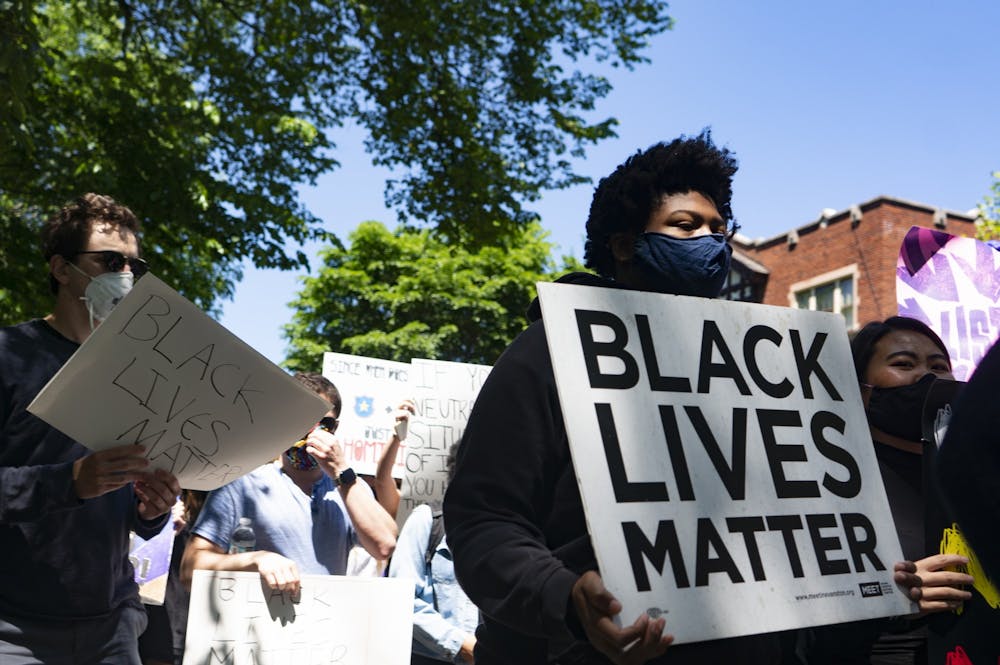“I can’t breathe.”
These words were repeated over and over again by George Floyd as a Minneapolis police officer pinned him to the ground, his knee on Floyd’s neck. Shortly thereafter, Floyd was dead.
On May 25, police officers killed George Floyd for being Black.
Being Black in America should not be a death sentence. But every day, Black Americans are viewed as inherently less than, their lives disposable, as they struggle to breathe under the weight of a system that was, and still is, actively meant to suppress them. The unjustifiable deaths of Ahmaud Arbery, Breonna Taylor and George Floyd are yet another reminder that America is failing Black people, time and time again.
Racism is as American as apple pie. From slavery, to lynching, to police brutality, state-sanctioned violence against Black Americans has existed for centuries — if you’re surprised, you clearly haven’t been paying attention. And here at UNC, it’s just as evident. The University actively disregards and silences the voices of its Black students, while University police routinely antagonizes Black community members and activists who speak out against the University’s racist status quo.
To our non-Black readers and friends, it is your responsibility to step up and demand justice for our Black peers. This is not a time for silence or complacency. To paraphrase Angela Davis, a Black activist and scholar, simply being 'not racist' is not enough — we must be actively anti-racist. It is not sufficient to merely say you value Black lives, or post performative displays of "support" on social media. Now is the time for direct action, and we must self-educate, organize and donate.

Students in Evanston, IL joined countless other cities around the nation in support of the Black Lives Matter movement by protesting against the killing of George Floyd and other recent tragedies on Sunday, May 31, 2020.
The silence from certain sectors of the UNC community, particularly IFC and Panhellenic fraternities and sororities, is deafening. Anti-Blackness has been institutionalized within these groups since their inception, and despite the frequency at which they consume and appropriate Black culture, white Greek organizations have made little effort to speak up and offer solidarity to the Black community. We urge predominantly white Greek organizations to take a stand, and look inwardly to evaluate the ways in which they perpetuate racism and anti-Blackness themselves.
The Daily Tar Heel, however, is not without fault when it comes to racial injustice. Far too many times, this news organization has excluded Black voices from its coverage. Our newsroom is predominantly white and lacking in the journalistic perspectives from the diverse communities whose very voices we seek and claim to amplify. Not only must we work to grow and amplify those voices within our own organization — we must listen to the Black community's concerns about their representation in the media and take action to avoid being complicit in worsening those concerns in our own coverage.




